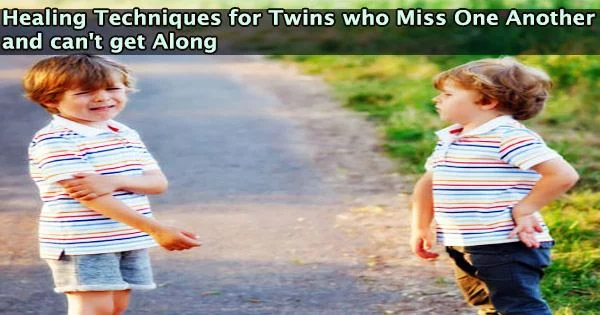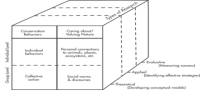Twins have contacted me asking for help in understanding their rage, fear, or just plain unhappiness with their twin after reading my books and blog postings on twin development. Finding a mental health specialist to assist a twin in getting along with their sister or brother has undoubtedly not been easy.
Sometimes a therapist may advise a patient that the solution to their problems might be as simple as mailing their twin a lovely Hallmark card. My twin readers are more realistic and more “in pain.” They are thirsty to heal their confusion, loneliness, anger, and despair related to being a twin in a non-twin world. The idea that twin issues can be understood easily is ridiculous. Twin relationships are nuanced and complicated and, frequently, very entangled.
Identity Confusion Is “Normal” for Twins
I ask myself why finding support with twin disappointment is so hard to come by in our psychologically-minded world that is overflowing with self-help advice. And I think that the underlying reason is that mental health professionals don’t understand the depth of the twin attachment, which can create a highly conflicted twin relationship and identity confusion.
Such proximity naturally and ineluctably leads to “over-identification” enmeshment or entanglement between the twin pair. “Who is who” identity confusion is a common problem that twins need to disentangle and deal with together and alone.
Problems With Over-Identification for Twins
Following are some general areas in which over-identification-related issues between twins appear to fall:
- A love/hate roller-coaster relationship that is based on longings and expectations for closeness. Disappointment, arguments, and subsequent reconciliation have become a typical yet dysfunctional pattern of interaction in the majority of these scenarios. For example, one moment a toy is lost that belongs to your twin and the world comes to an end. Just as quickly, Mom finds the toy, and joy and happiness are seen in the resultant twin play.
- A relationship that is dangerously out of balance when one partner is extremely exceptional while the other feels invisible or “should be” invisible. This negative component of the twin connection is fueled by parental favoritism.
- Continual fighting over “who knows best” and “who needs to be the follower.” (This is much more serious than a dominance/non-dominant issue and a seemingly impossible problem to solve.)
- Incompatible twins who prevent their parents, kids, or cousins from seeing one another at family gatherings. Family conflict over these issues is very unpleasant and difficult to reconcile, especially during special occasions and holidays.
- Anger and resentment that one twin is more successful than the other. This kind of competitive behavior is exceedingly tough to control for both of the twins, even with adequate parenting. While the “less than” twin may grow enraged or self-loathing, the successful twin may feel guilty.
- Separation fears and anxiety when new partners are introduced into the lives of the twins. For example, the anticipation of sharing your twin’s joy in marriage is always very difficult and confusing for the twin who is the bridesmaid, not the bride.
- Deep resentment and fury can develop when twins share the same desires for things like clothes, grades, houses, and even romantic relationships. This can result in arguments and alienation.
- Twin disappointments are misunderstood by society, who disregard them as an exaggerated response. Twins are caught in the midst, yearning for assistance but receiving no understanding of their shared struggles. Being a twin is a “perfect and ideal” relationship for uninformed non-twins. Really, being a twin is a very difficult challenge.
Twins Inevitably Feel Misunderstood
Regardless of whether they are estranged or have a functional relationship, twins frequently experience loneliness and a sense of being misunderstood. Here are some ways to counteract or diminish your loneliness.
- Psychotherapy that takes into account your twin problems as serious and worthy of attention in the therapy session. Therapists who dismiss the twin problem as “secondary” cannot be helpful.
- Reading and understanding what it means to be a twin in a non-twin world.
- Finding twin friends who want to explore your twin reactions with you.
- Sharing what you know about twinship with your family and asking them to help you overcome the roadblocks that you and your twin share.
In conclusion, issues with your twin relationship become less serious and much simpler to view in perspective when you find comfort in your own life. It is typical for twins to experience loneliness and look for twin substitutes in order to grow confident. However, if excessive intimacy from twin replacements is expected, then sadness, disappointment, and loneliness may return.
















